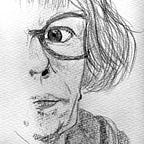Sugar research: compare, consider, test
We take science seriously at Kilter. When Kiran and I write articles, we read the original studies that are quoted in the popular press; we look up the stats in primary sources; we run the numbers and do the math. I consider us well informed laypeople. But it isn’t easy to get there. Science isn’t perfect; methods change, theory evolves. Every study can be interpreted in a new light by an inquiring mind.
For example, Gary Taubes’ article on sugar research is what got me started on putting together No Sugar November.
The article connects the dots between sugar, obesity and insulin. He walks his way through the history of research into obesity and diabetes, explaining how science changed, but advice did not. It’s a fascinating article well worth the time to read. But is it true?
Yvette d’Entremont, aka SciBabe, rails against the incessant flip-flopping of diet fads and advice and in this article debunks sugar myths. Her article is full-on personality combined with a review of current ideas and literature about them.
She cites articles I have also read and I had some disagreements about her interpretations. Since I know the sources pretty well, I can see how she is using them to assert her points. She isn’t wrong but she isn’t exactly right, either. And that’s the problem; data is subject to all sorts of massaging to tease out preferred conclusions.
It happens among scientists and even more so when journalists and laypeople write about science. For example, I was tempted to do a few “pull quotes” from Taubes’ and d’Entremont’s articles to emphasise my points. And even though the articles are in many ways contradictory, I can easily find things that fit my view in both of them.
How do you combat this problem, short of reading and analysing every article, research paper or book?
- Read a variety of sources. Compare and contrast articles. When you see contradictions, find the original data.
- Understand your personal biases. They will bend you towards one truth or another. Not sure what yours might be? Here’s a handy list of them.
- Self-experiment. Trying something out on yourself, like No Sugar November, might not find the ultimate truth of the issue, but it will reflect a truth for your body specifically. We are all different. What works for you, works for you despite what science may prove otherwise.
Sugar research and the state of science journalism is a terrific topic to discuss on the #kilter channel on Friends of HasGeek Slack and on our Kilter WhatsApp group. Please do join in to share your view.
